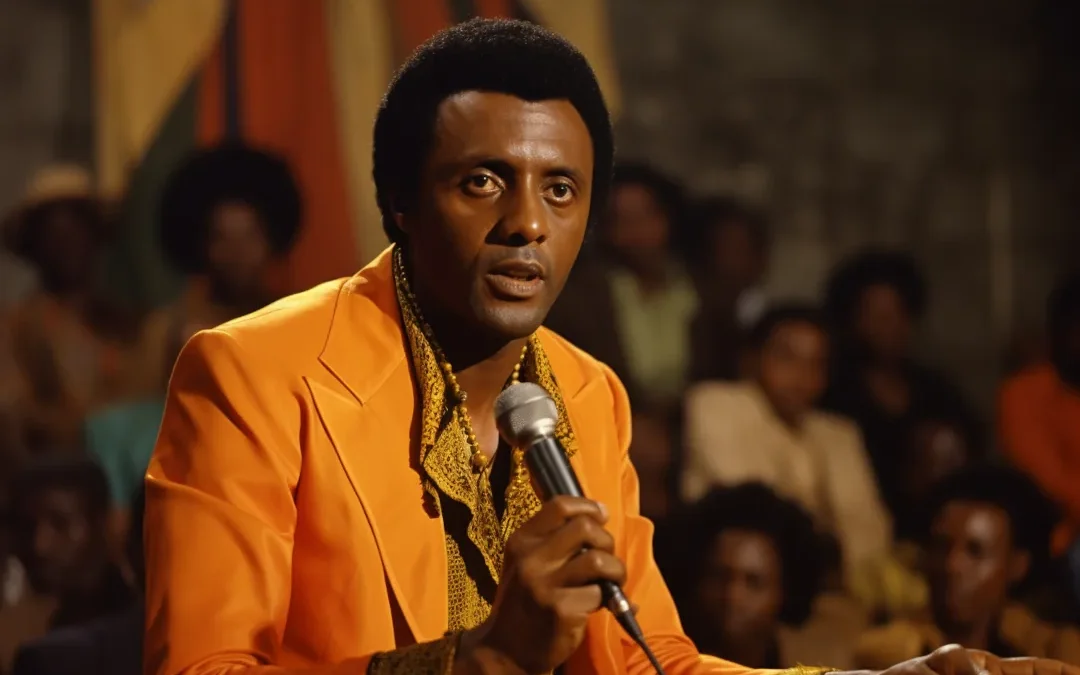Nothing ruins a movie like knowing exactly what will happen. Not all share this opinion. After all, Disney pops out predictable superhero tales at an unprecedented rate and they all seem to make money. I cannot watch these movies precisely because I have no patience for a plot that has clearly been mapped out for me. For this same reason, biopics and historical films about well known individuals and events rarely pique my interest. Sorry Spielberg, but I already know what happens in Lincoln.
For all the criticism M. Night Shyamalan has been subjected to throughout the years, predictability has not been one of them. All the hints were there, but nobody saw the twists coming in The Sixth Sense, Unbreakable, or The Village. Admittedly, over the last decade, Split is the only Shyamalan film I have actually seen. Split managed to add an interesting twist to a movie that would surely lack one by any other filmmaker, so I had rather high hopes for Knock at the Cabin. Unfortunately, Knock at the Cabin presents a high-concept similar to other Shyamalan films but lacks any twist to subvert audience expectations.
Knock at the Cabin moves quickly, introducing a menacing looking yet oddly kind Leonard (Dave Bautista), who approaches seven year old Wen (Kristen Cui) in the woods and attempts to endear himself to her. The conversation turns weird and foreboding. Three of Leonard’s friends approach carrying weapons and Wen finally has the sense to flee to a nearby cabin to alert her fathers to the imminent danger. They lock the doors just in time for the titular knock at the cabin. The assailants quickly break in and tie up the family.
At this point, anything could happen, but at the inciting moment the plot paints itself in a corner. Leonard explains that the four assailants, strangers to one another, have been sent by identical visions from God. For some reason God will cancel an imminent apocalypse should one of these three family members willingly sacrifice their life, with another family member executing the sacrifice. At certain times, they will be asked to make the sacrifice, and if they fail to do so one of the assailants will sacrifice themselves instead and trigger some global catastrophe with a high death count. If the family refuses, everyone in the world will die but them. There are a lot of rules.
At this point, there are four possible paths for the plot. The apocalypse is real and the family will allow for the end of the world, the apocalypse is real and the family makes the sacrifice, the apocalypse is fake and the family waits until their captors all kill themselves, or the apocalypse is fake and the family erroneously make a pointless sacrifice. That last one might be interesting if executed properly, but it’s a surefire way to make audiences feel cheated. I’ll let you guess which path they take—you will be right and every assumption you would make about every plot point will be right, too. It feels oddly counter-intuitive trying to avoid spoilers for a movie so predictable that the concept cannot properly be applied, but out of convention I will do so nonetheless.
Within this plot does lie a rather interesting philosophical concept that Shyamalan can’t help but detail with some on-the-nose dialogue: Do our selfish concerns for family, while traditionally thought as noble, actually lead to the world’s destruction? This is an idea worth examining and Knock at the Cabin certainly deserves credit for tackling it. We make a rotten education system by creating school districts for the haves and school districts for the have-nots. Even when we recognize the problem we still can’t risk our children going to school with the have-nots. We move into suburban neighborhoods to keep our families safe and happy. But these suburban neighborhoods are a blight on the environment, waste government resources that could be otherwise spent lifting up the most needy, and reenforce systemic racism. To keep our families safe we’ll accept illiberal limitations on basic freedoms so we can believe that “law and order” protects the ones we love. Prioritizing the well-being of the family at the expense of the world may be a great moral failing of humanity.
Unfortunately, Knock at the Cabin extends this thought experiment so far into the realm of hyperbole that it cannot be taken seriously. It never imagines a way to apply this idea to the real world, instead establishing a sort of religious test only applicable to the religious. Like the Genesis story of God commanding Abraham to sacrifice his son, Isaac, this story merely demonstrates the arbitrary cruelty of the Abrahamic God. Killing millions to set up an exaggerated trolley problem is the work of a pretty sadistic deity.
This brings us to a theological problem that Knock at the Cabin conveniently ignores. If God is real, then why fear the apocalypse and why try to prevent it? Once the reality of an afterlife has been confirmed, death suddenly becomes much less tragic. In fact, following the logic of the theology, it would make sense for one of the fathers to kill Wen. After all, the innocence of her young age would assure her a spot in heaven. Why would they risk her growing up and maturing into an adult bound for hell? There would actually be a plot twist worthy of the Shyamalan name.
Knock at the Cabin presents one missed opportunity after the next. The plot misses any opportunity to do something interesting. The philosophical question underpinning the plot fails to confront any of its many implications. The characters fail to show any real growth or learn anything significant. We’re left with a plot that disappointingly aligns with our predictions.




